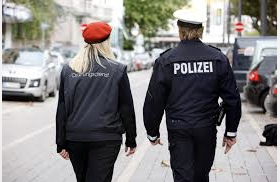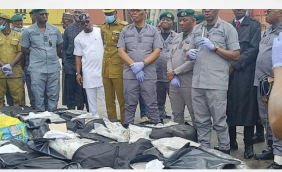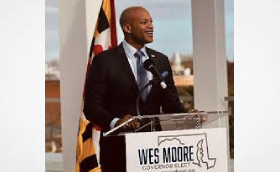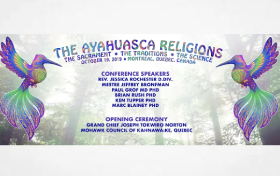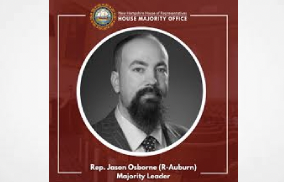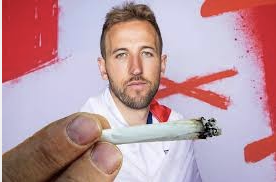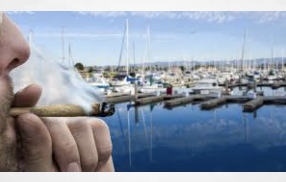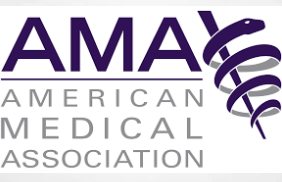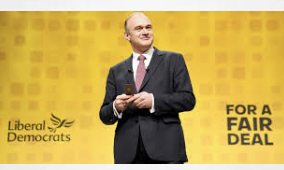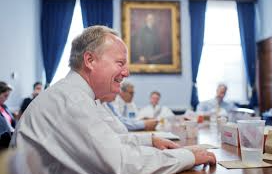Cocaine Inc, a new podcast series based on a joint investigation by The Times and News Corp, which covers the trade in illegal cocaine across six different countries that, as the narrator explains, is “an industry where the profits are counted out in millions and the losses are measured out in murders”.
The trailer for the series conveys that the eight episodes will entail huge profits, lavish lifestyles, the violence involved in the trade run by huge criminal networks, and the fact that no matter how many busts and seizures law enforcement performs, the white lines just keep flowing.
But it’s likely that Cocaine Inc won’t point out that cocaine itself is just a power produced from the coca plant that doesn’t commit crimes, that hasn’t murdered anyone and nor does it lead a lavish lifestyle due to all the profits it generates. Indeed, cocaine doesn’t even drive a fancy car.
And that’s because all the profits, the crime, the killings and the glamour involved in the cocaine industry are all due to the illegality of the drug. And the trappings that serve to make Cocaine Inc so sensationally attractive to audiences are too a byproduct of a once regular plant made unlawful.
And NSW Greens MLC Cate Faehrmann has taken the opportunity the podcast has afforded to again make the point that if cocaine was legalised and regulated, all criminal profiteering, the associated killings and much of the harms associated with the drug’s use would disappear.
White lines, blow away
“Despite the fact it’s illegal, despite the fact the police are throwing everything at it. Cocaine use is increasing. Cocaine supply is increasing,” Faehrmann said, on Sunrise on Wednesday morning. “We can’t stop people using cocaine, that’s for sure. And I don’t think it can get any worse.”
“We’ve waged the war against drugs now across the world for 50 years,” the Greens drug law reform spokesperson explained.
“More people are taking drugs than ever before and more drugs are being produced, so I’m saying it’s time for another approach. We should have all options on the table.”
One of those options would be the decriminalisation of cocaine, which would mean that civilians caught in the possession of an amount of drug deemed for personal use would not be criminally charged but rather sent for counselling if it was thought the individual needed it.
Yet, decriminalisation, which currently operates in the Australian Capital Territory, doesn’t solve the issue of a drug like cocaine being cut with more harmful substances, like fentanyl and nitazene, by illegal drug manufacturers, who don’t have to comply with quality control standards.
Sunrise host Natalie Barr clearly couldn’t grasp the concept though, as while Faehrmann described a lawful regulated cocaine market, which would no longer involve toxic adulterants due to quality control standards, the TV presenter responded with, sounds like a “free for all for drug dealers”.
Prohibition increases use
“Well, let’s have a think, right,” Faehrmann suggested to Barr, and went on to point out that “alcohol had been illegal at one point” in the US, as people thought it dangerous and required banning, yet this then resulted in highly toxic and deadly illegal alcohol being sold on the streets.
The US banned alcohol in 1920. And after an initial drop, it soon led to increased consumption of the illicit substance at unprecedented rates, with rising numbers of women taking it up.
There was further a rise in the number of establishments serving alcohol, while a previously nonexistent youth drinking issue emerged.
During US prohibition, people started dying from unregulated booze sold to replace the quality controlled legal product. And another issue was that people switched to stronger grog, as when smuggling substances, the stronger the better, as it takes up less room and still gets people loaded.
The other major outcome of alcohol prohibition in the States was that it created new criminal gangs running the illegal product. And this, of course, led to turf wars and killings of and by both the cops and the crooks. And the most infamous kingpin of the illegal booze trade was Al Capone.
“We saw what happened there,” Faehrmann continued, “highly dangerous, highly poisonous alcohol was produced.”
“Ideally, it would be great if people didn’t drink, because it really is a poison,” the NSW Greens harm reduction spokesperson told the Sunrise host, “and that people didn’t smoke cigarettes, but they want to, so we regulate it.”
“We should start thinking about that with currently illegal drugs like cocaine.”
Drug prohibition kills
In June 2011, The Global Commission on Drug Policy declared in its first report that the “global war on drugs has failed, with devastating consequences for individuals and societies around the world”. And the 24 page document points to outcomes akin to the US decade of alcohol prohibition.
Huge criminal networks run the illicit drug trade and law enforcement can’t do much about it. There are more drugs available and there is more drug use than ever before.
And while many locals consider getting arrested for having a bag of coke is par for the course, consider when they used to lock people up for a bottle of whiskey.
“The zero-tolerance approach to drug use continues to be an abject failure, costing taxpayers many billions of dollars and wasting an extraordinary amount of police resources,” Faehrmann continued, in chorus with the Global Commission, which was lately chaired by former NZ PM Helen Clark.
“Recent estimates have Australians consuming around 3,300,000 bags of cocaine per year, with every single one of them bought off the black market,” she added and went on to explain that there is no way of knowing what it could be cut with.
NSW premier Chris Minns promised to have a NSW Drug Summit whilst he was running in an election early last year, but then he went and reneged on his pledge, postponing the meeting to who knows when much to the dismay of many lawyers, medical experts and human rights advocates.
And it’s not only cocaine using eastern suburbs types that are being put out: it’s the parents who have lost kids and want pill testing implemented so others are saved the same tragedy, and it’s those with a long-term health issue that they can’t address adequately because it’s a crime.
“A regulated market would undercut the black market and drive organised drug gangs out of business,” said Faehrmann, listing some tough-on-crime outcomes of ending drug prohibition, which are sure to get major party pollies giddy.
“A government-regulated market would also mean people would know what substances they were taking and could receive information about how to reduce harm,” the Greens members said in conclusion.
